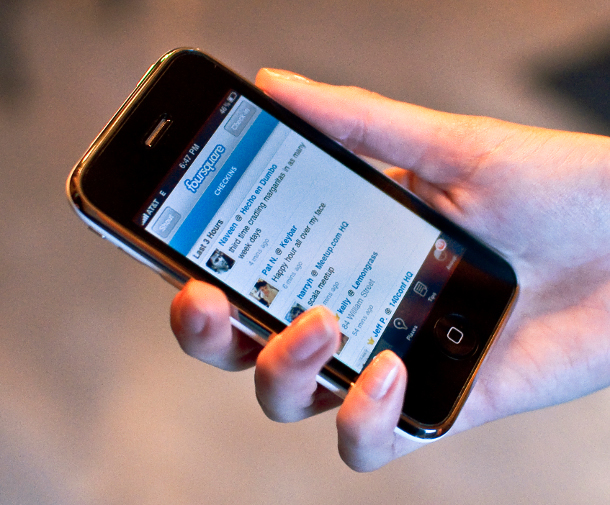Advertisers checking in to location-based mobile marketing

Mobile location-based ad market to be worth $1.8bn in 2015, says analyst house
The marriage of mobile handsets with location apps and services offers new opportunities to bricks-and-mortar retailers to get customers in the door and spending money, says ABI Research which is predicting the US mobile location-based advertising market will be worth $1.8bn in 2015.
The analyst house said advertisers are still experimenting with location-based technology but the rise of social gaming services such as Foursquare, where users "check-in" to real world locations to earn badges for loyalty and to let their friends know where they are, is creating a growing audience of mobile users who are switched on to sharing their location.

Foursquare users can 'check-in' to venues via their iPhone
(Photo credit: Foursquare)
Social network Facebook has also recently added a location feature to its services with the launch of Facebook Places, while apps such as Shopkick enable US iPhone owners to gain rewards just for visiting certain shops and shopping malls.
"It's still early days and there's no single 'right' approach to location-based advertising," said ABI Research practice director Neil Strother in a statement, adding: "This remains a very fragmented market that is full of experimentation."
Even so, options for mobile advertisers are becoming more clearly defined, according to Strother, with three sets of location technologies in play: GPS, wi-fi and cell-ID - which approximate location by using the identity number of the mobile base station a handset is currently connected to.
Strother said the most successful ad campaigns use a mixture of some or all of these location techs, depending on the product or service, the region, the consumers, and the location accuracy required.
Retailers looking to instigate a location-based mobile marketing campaign should spend time analysing their customers' mobile and location habits in order to develop the best location approach, ABI Research's Location-Based Marketing report notes. They will also need to choose a location-based service partner, and determine the location technologies best suited to their brand.
Another issue to consider is whether mobile users might be wary of sharing their location with marketers - so marketers need to ensure the proposition is attractive enough to convince mobile users to buy in to location-sharing, said ABI Research.
"Some [mobile users] might be put off by the 'Big Brother' aspects of this," noted Strother. "But it's really about the value-exchange: if you care about getting discounts or being rewarded for shopping, is the value-exchange high enough so that you'll accept having your whereabouts known to these companies in return for the benefits?"